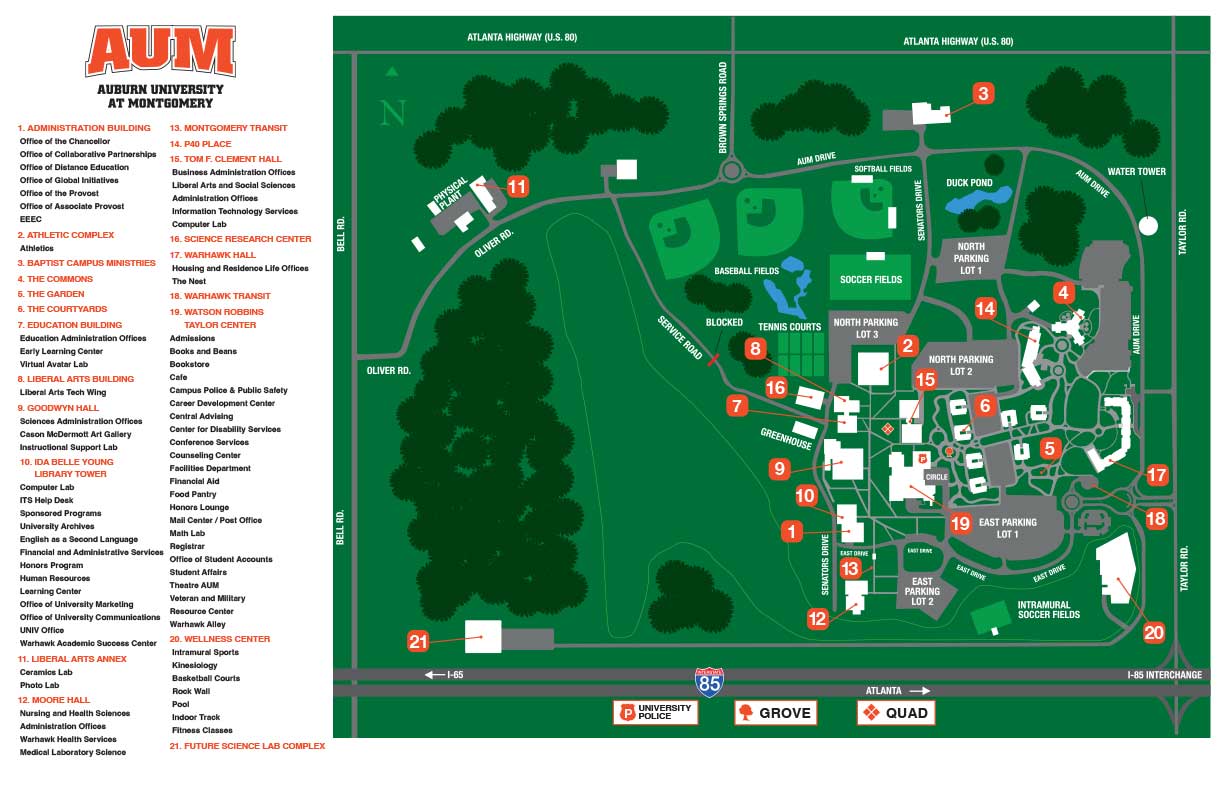A University in Motion. Apply now!
Rural History and Ecology Research Institute
Through scholars and experts from the Department of Biology and Environmental Sciences and other academic units at AUM, the university is in the process of developing the Rural History and Ecology Research Institute. The RHERI will use AUM’s own land to help learners, scholars, and citizens of all ages discover the interconnectedness of Alabama’s rural history, ecology, and our modern world’s environmental justice issues. Learners will find the confidence to explore their environmental communities and the knowledge to understand the connections between our ecology and past land-use choices made. With this new understanding we will help create the next generation of leaders who will find solutions for a more environmentally just community and world.
AUM Biodiversity Survey
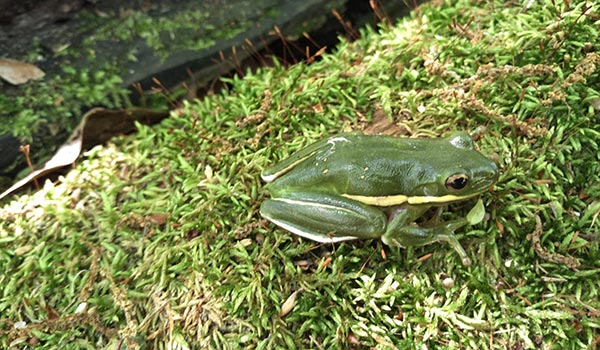
Help us document the biodiversity of the Auburn University Montgomery forest. The AUM faculty created this project to give AUM students, staff, faculty, and visitors an opportunity to share their observations of the plants and animals that share campus with us. Please join us and share what you see!
AUM Invasive Plant Removal
OLLI Field Trip – A Walk in the Woods
The Need
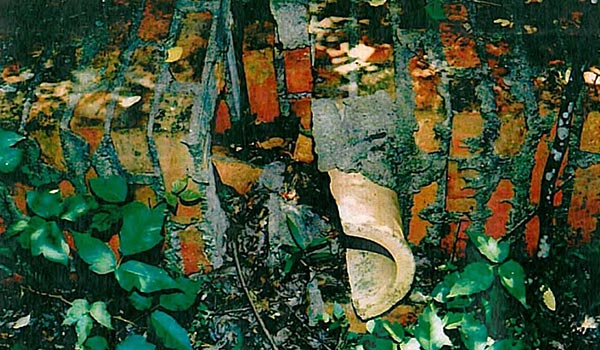
Students of all ages benefit from hands-on, interdisciplinary learning experiences. However, local students have little to no opportunity to learn about the importance and need for native natural space, the history of the land in Montgomery, and why sustaining and restoring the land is so important. They have few affordable educational venues for history and ecology related experiential field trips.
Surprisingly, the city of Montgomery does not have a nature center—an older arboretum closed years ago. This leaves the portion of our community most in need without a space or opportunity to learn about their natural environment.
Using roughly 250 acres of AUM’s woodlands and wetlands as a living laboratory, RHERI will be a free resource for MPS teachers and students. They will have the opportunity to learn and explore through ongoing field trips, summer programming, and use of the outdoor classrooms and educational spaces.
RHERI’s Vision
Through the leadership of an executive director and advisory board–and with input from AUM, community partners, local school representatives, state regulatory groups, and local government–RHERI’s vision is two fold.
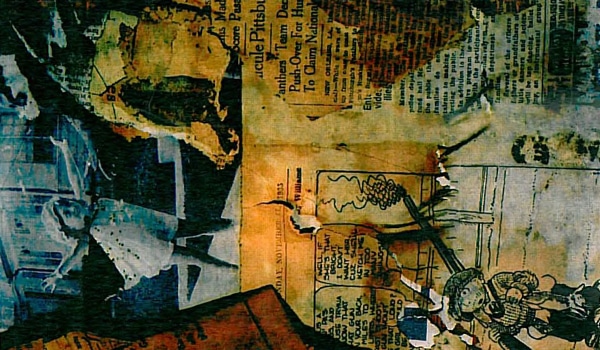
Project Phases
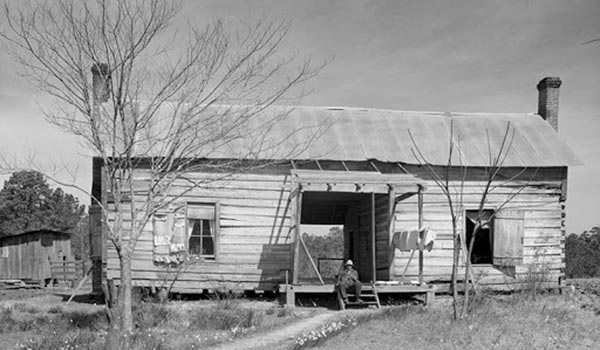
The development of RHERI consists of a multi-year, eight-phase plan to restore the wetlands on campus, create K-12 curricula that aligns with Montgomery Public Schools standards of learning, rally various constituencies to support the initiative, and much more.
AUM’s Land: A Brief History
Prior to its purchase by the state of Alabama and Auburn University in the late 1960s, the approximately 500 acres that would eventually become Auburn University at Montgomery were agricultural fields. In the 19th century, the Oliver, Brown, and McLemore families owned these lands. By the turn of the 20th century, their lands had combined through marriages, creating the approximately 7,000-acre McLemore Plantation, which operated through the 1960s. Although the McLemores owned the land, sharecroppers and tenant farmers worked it well into the mid-20th century.
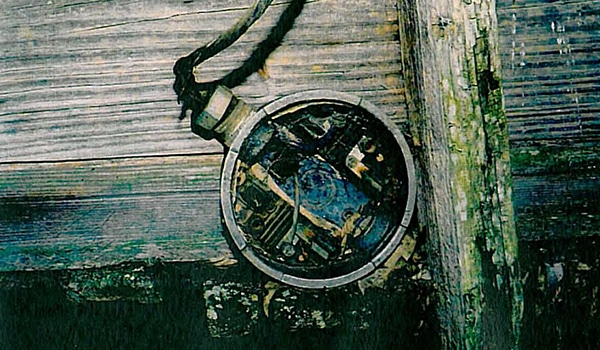
Tenant Farming: A Brief History
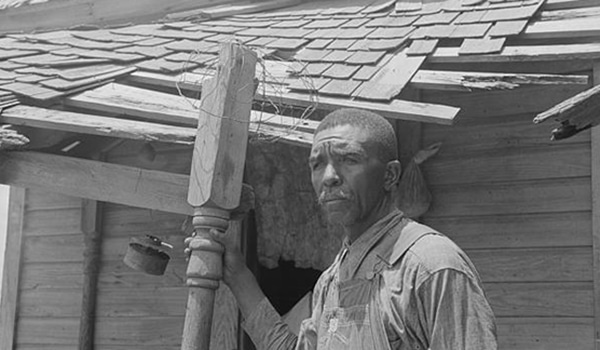
In the Black Belt in the American South until the mid 20th century, the predominant agricultural system involved white landowners and African-American tenant farmers. Very little cash changed hands. The few local banks were small and cash was scarce and had to be hoarded for taxes. Landowners needed a great deal of labor at harvest time to pick the cash crop, cotton.
The typical plan was to divide old plantations into small farms that were assigned to the tenants. Throughout the year, they tended their own gardens. Every week, they bought food and supplies on credit through the local country store. At harvest time, the tenants picked the cotton, and turned it all over to the landowners. They sold the cotton on the national market and used part of the funds to pay the debts owed to the country store. The cycle then started all over again.
Partners and Donors
Contact Us
For more information, contact:
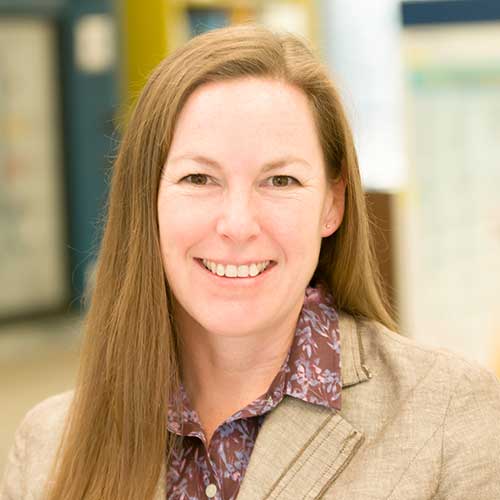

Chelsea Ward
Professor/Head | College of Sciences
Ph.D. (2005) Auburn University in Biology
BS (1998) Florida Institute of Technology in Marine Biology
Dr. Ward’s research focuses are on immunology and stress physiology as it relates to temperature and changing environments. She also has interested in latitudinal gradients in stress physiology, immunology, and metabolism in Anurans.

